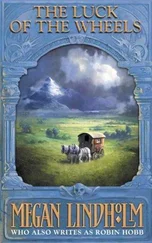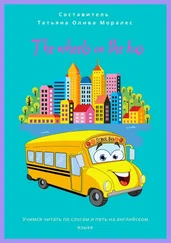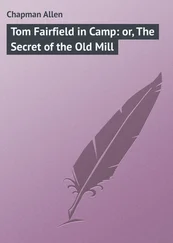L. Camp - The Wheels of If
Здесь есть возможность читать онлайн «L. Camp - The Wheels of If» весь текст электронной книги совершенно бесплатно (целиком полную версию без сокращений). В некоторых случаях можно слушать аудио, скачать через торрент в формате fb2 и присутствует краткое содержание. Жанр: Книги. Описание произведения, (предисловие) а так же отзывы посетителей доступны на портале библиотеки ЛибКат.
- Название:The Wheels of If
- Автор:
- Жанр:
- Год:неизвестен
- ISBN:нет данных
- Рейтинг книги:4 / 5. Голосов: 1
-
Избранное:Добавить в избранное
- Отзывы:
-
Ваша оценка:
- 80
- 1
- 2
- 3
- 4
- 5
The Wheels of If: краткое содержание, описание и аннотация
Предлагаем к чтению аннотацию, описание, краткое содержание или предисловие (зависит от того, что написал сам автор книги «The Wheels of If»). Если вы не нашли необходимую информацию о книге — напишите в комментариях, мы постараемся отыскать её.
The Wheels of If — читать онлайн бесплатно полную книгу (весь текст) целиком
Ниже представлен текст книги, разбитый по страницам. Система сохранения места последней прочитанной страницы, позволяет с удобством читать онлайн бесплатно книгу «The Wheels of If», без необходимости каждый раз заново искать на чём Вы остановились. Поставьте закладку, и сможете в любой момент перейти на страницу, на которой закончили чтение.
Интервал:
Закладка:
"What king?"
"Why, our king of course. David the Fuist." The cop touched his finger to the peak of his cap.
* * *
Park settled himself on a park bench with a newspaper. The paper was full of things like references to the recent Anglo-Russian war, the launching of the Queen Victoria , His Majesty's visit to a soap factory ("Where he displayed a keen interest in the technical problems involved in . . ."), the victory of Massachusetts over Quebec in the Inter-Colonial football matches (Massachusetts a colony? And football in April?), the trial of one Diedrichs for murdering a man with a cross-cut saw. . . .
All this was very interesting, especially the Diedrichs case. But Allister Park was more concerned with the whereabouts and probable fate of the Antonini gang. He also thought with gentle melancholy of Mary and Eunice and Dorothy and Martha and Joan and . . . But that was less important than the beautiful case he had dug up against such a slimy set of public enemies. Even Park, despite the cynical view of humanity that public prosecutors get, had felt a righteous glow when he tallied up the evidence and knew he had them.
And the nomination was not to be sneezed at either. It just happened that he was available when it was a Protestant's turn at that nomination. If he missed out, he'd have to wait while a Catholic and a Jew took theirs. Since you had to be one or the other to get nominated at all, Park had become perforce a church member and regular if slightly hypocritical goer.
His plan was, after a few terms as DA, to follow the incumbent DA onto the bench. You would never have guessed it, but inside Allister Park lingered enough of the idealism that as a young lawyer he had brought from Colorado to give the bench an attractiveness not entirely comprised of salary and social position.
He looked in his pockets. There was enough there for one good bender.
Of the rest of the day, he never could remember much afterwards. He did remember giving a pound note to an old woman selling shoelaces, leading a group of drunks in a song about one Columbo who knew the world was round-o (unexpurgated), and trying to take a fireman's hose away from him on the ground that the city was having a water shortage.
* * *
He awoke in another strange room, without a trace of a hangover. A quick look around assured him that he was alone.
It was time, he thought, that he worked out a system for the investigation of his identity on each successive morning. He learned that his name was Wadsworth Noe. The pants of all the suits in his closet were baggy knee pants, plus fours.
Something was going ping , ping , ping , like one of those tactful alarm clocks. Park located the source of the noise in a goose-necked gadget on the table, which he finally identified as a telephone. As the transmitter and receiver were built into a single unit on the end of the gooseneck, there was nothing to lift off the hook. He pressed a button in the base. A voice spoke: "Waddy?"
"Oh—yeah. Who's this?"
"This is your little bunnykins."
Park swore under his breath. The voice sounded female and young; and had a slight indefinable accent. He stalled: "How are you this morning?"
"Oh, I'm fine. How's my little butterball?"
Park winced. Wadsworth Noe had a figure even more portly than Allister Park's. Park, with effort, infused syrup into his voice: "Oh, I'm fine too, sweetie-pie. Only I'm lonesome as all hell."
"Oh, isn't that too bad! Oo poor little thing! Shall I come up and cook dinner for my precious?"
"I'd love it." A plan was forming in Park's mind. Hitherto all these changes had taken place while he was asleep. If he could get somebody to sit around and watch him while he stayed up . . .
The date was made. Park found he'd have to market.
On the street, aside from the fact that all the men wore plus fours and wide-brimmed hats, the first thing that struck him was the sight of two dark men in uniform. They walked in step down the middle of the sidewalk. Their walk implied that they expected people to get out of their way. People got. As the soldiers passed him, Park caught a sentence in a foreign language, sounding like Spanish.
At the market everyone spoke with that accent Park had heard over the phone. They fell silent when another pair of soldiers entered. These loudly demanded certain articles of food. A clerk scurried around and got the order. The soldiers took the things and departed without paying.
Park thought of going to a library to learn about the world he was in. But if he were going to shift again, it would hardly be worthwhile. He bought a New York Record , noticing that the stand also carried a lot of papers in French and Spanish.
Back in his apartment he read of His Majesty Napoleon V, apparently emperor of New York City and God knew what else!
* * *
His little bunnykins turned out to be a smallish dark girl, not bad-looking, who kissed him soundly. She said: "Where have you been the last few days, Waddy? I haven't heard from you for simply ages ! I was beginning to think you'd forgotten me. Oo hasn't forgotten, has oo?"
"Me forget? Why, sweetie-pie, I couldn't any more forget you than I could forget my own name." (And what the hell's that? he asked himself. Wordsworth—no, Wadsworth Noe. Thank God.) "Give us another kiss."
. . . She looked at him. "What makes you talk so funny, Waddy?"
"Canker sore," said Allister Park.
"O-o-o, you poor angel. Let me see it."
"It's all right. How about that famous dinner?"
* * *
At least Wadsworth Noe kept a good cellar. After dinner Park applied himself cautiously to this. It gave an excuse for just sitting. Park asked the girl about herself. She chattered on happily for some hours.
Then her conversation began to run dry. There were long silences.
She looked at him quizzically. "Are you worrying about something, Waddy? Somehow you seem like a different man."
"No," he lied. "I'm not worrying."
She looked at the clock. "I suppose I ought to go," she said hesitantly.
Park sat up. "Oh, please don't!"
She relaxed and smiled. "I didn't think you'd let me. Just wait." She disappeared into the bedroom and presently emerged in a filmy nightgown.
Allister Park was not surprised. But he was concerned. Attractive as the girl was, the thought of solving his predicament was more so. Besides, he was already sleepy from the liquors he had drunk.
"How about making some coffee, sweetie-pie?" he asked.
She acquiesced. The making and drinking of the coffee took another hour. It was close to midnight. To keep the ball rolling, Park told some stories. Then the conversation died down again. The girl yawned. She seemed puzzled and a bit resentful.
She asked: "Are you going to sit up all night?"
That was just what Park intended to do. But while he cast about for a plausible reason to give, he stalled: "Ever tell you about that man Wugson I met last week? Funniest chap you ever saw. He has a big bunch of hairs growing out the end of his nose. . . ."
He went on in detail about the oddities of the imaginary Mr. Wugson. The girl had an expression of what-did-I-do-to-deserve-this. She yawned again.
Click! Allister Park rubbed his eyes and sat up. He was on a hard knobby thing that might, by gross misuse of the language, be called a mattress. His eyes focussed on a row of iron bars.
He was in jail.
* * *
Allister Park's day in jail proved neither interesting nor informative. He was marched out for meals and for an hour of exercise. Nobody spoke to him except a guard who asked: "Hey there, chief, who ja think you are today, huh? Julius Caesar?"
Park grinned. "Nope. I'm God, this time."
This was getting to be a bore. If one could do this flitting about from existence to existence voluntarily, it might be fun. As it was, one didn't stay put long enough to adjust oneself to any of these worlds of—illusion?
Читать дальшеИнтервал:
Закладка:
Похожие книги на «The Wheels of If»
Представляем Вашему вниманию похожие книги на «The Wheels of If» списком для выбора. Мы отобрали схожую по названию и смыслу литературу в надежде предоставить читателям больше вариантов отыскать новые, интересные, ещё непрочитанные произведения.
Обсуждение, отзывы о книге «The Wheels of If» и просто собственные мнения читателей. Оставьте ваши комментарии, напишите, что Вы думаете о произведении, его смысле или главных героях. Укажите что конкретно понравилось, а что нет, и почему Вы так считаете.











